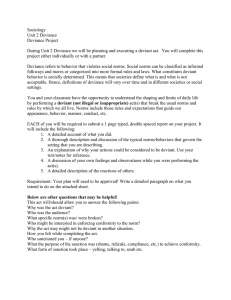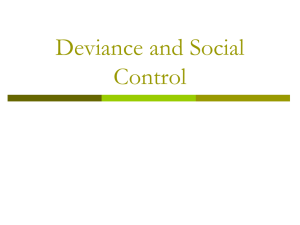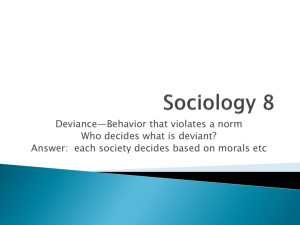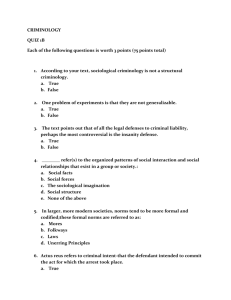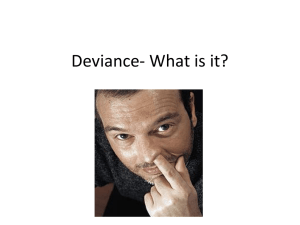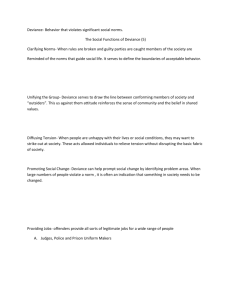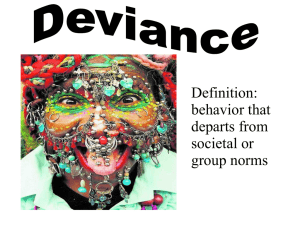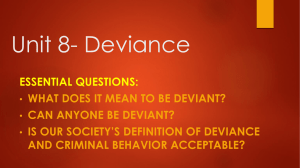Deviance & Social Control - Tipp City Exempted Village Schools
advertisement
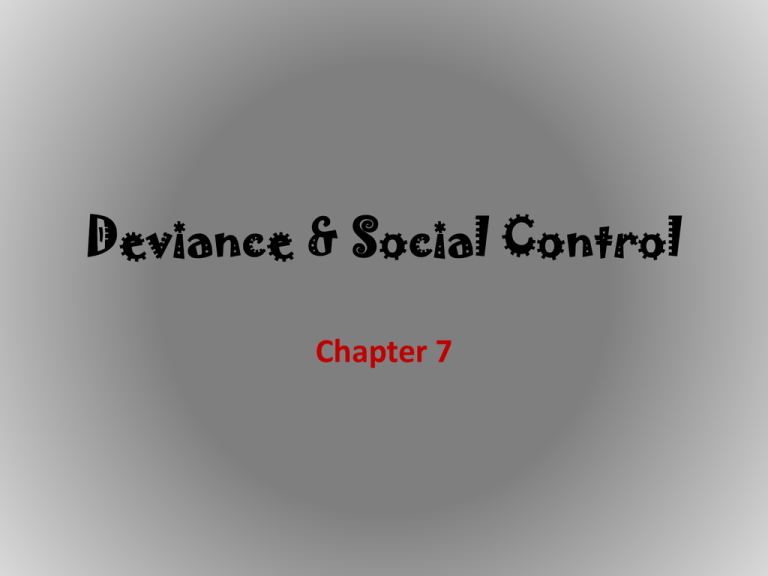
Deviance & Social Control Chapter 7 Deviance • Behavior that departs from societal or group norms • Can be positive or negative • Most reserve term deviance for violations of significant social norms • Deviant – person who has acted in violation of one or more of society’s most highly valued norms. Social Control • Promotes social stability thru conformity to norms • Internal – individual decides to follow norms or not to violate norms because he or she has internalized them • External – imposed by the group on individuals through use of positive sanctions or negative sanctions • Shaped by those in power Functions of Deviance 1. 2. 3. 4. 5. Clarify norms Unify a group Diffuse tension Promote social change Provide jobs Strain Theory • Anomie – social condition in which norms are weak, conflicting or absent • Deviance occurs when there’s a gap between culturally desirable goals and way to obtain them • When people accept the goal & means to achieve it – they conform Deviant Responses to Strain 1. Innovation – accepts goal but uses illegal means to achieve it 2. Ritualism – individual rejects goal but continues to use the legitimate means 3. Retreatism – both legitimate means & approved goals are rejected 4. Rebellion – reject both the goal & the approved means for achieving it – but substitute a new set of goals & means Control Theory • Conformity depends on the presence of strong bonds between individual & society • 4 Components of social bonds 1. 2. 3. 4. Attachment Commitment Involvement Belief Differential Association Theory • Based on symbolic interactionism • Deviance is learned from primary groups • Based on 3 factors – Ratio of deviant to nondeviant individuals – Significance of deviant person – Age of exposure Labeling Theory • Explains why deviance is relative • Primary deviance – isolated deviant acts • Secondary deviance – deviance is a lifestyle – Use social stigmas (undesirable label by others used to deny the deviant full social acceptance Discussion Topic: • There is a body of evidence that suggests religious people are less inclined to commit deviant acts. The strong social bonds of religious affiliation serve to control behavior. • Do you believe there is a link between religious affiliation and social behavior? • With a growing number of atheists – do you think deviant behavior will increase? If so, can anything prevent that from happening?
